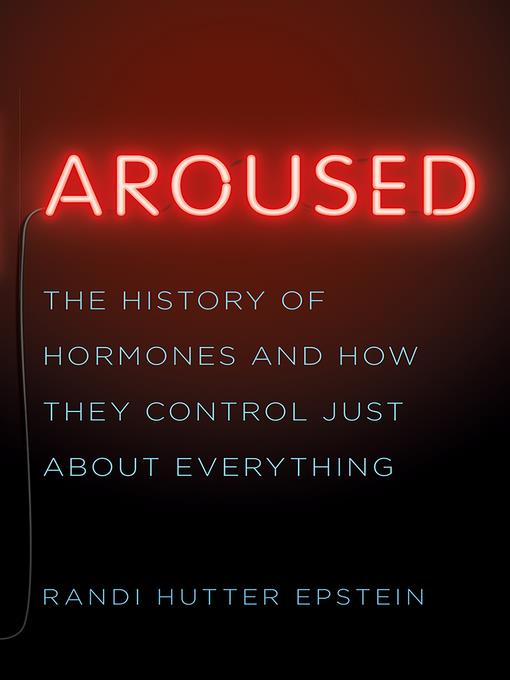
Aroused
The History of Hormones and How They Control Just About Everything
تاریخچه اسبها و چگونگی کنترل آنها فقط در مورد همه چیز
کتاب های مرتبط
- اطلاعات
- نقد و بررسی
- دیدگاه کاربران
نقد و بررسی

March 15, 2018
Hormones regulate most of the body's physiological processes. Metabolism, immunity, sleep, mood, sexual development and desire, and the ability to fight and flee from danger all depend on them. Epstein, a physician at Yale and Columbia, presents a history of the scientific discoveries that led to knowledge of the existence of these powerful substances. The author introduces the colorful researchers who performed experiments that would never be permitted with current ethical regulations: William Bayliss and Ernest Starling, who discovered the role of the pancreas in digestion and angered anti-vivisectionists in the process; Louis Berman, who thought that hormones caused criminal behavior; and Eugen Steinach, who touted vasectomies to preserve male strength. Readers learn of snake oil cures and the important therapeutic roles that hormones play. Transplanting goat testicles led to disaster, but using insulin for diabetes and replacing thyroid and adrenal hormones when they are deficient saves lives. VERDICT An engaging book of medical history that teaches readers about important aspects of physiology.--Barbara Bibel, formerly Oakland P.L.
Copyright 2018 Library Journal, LLC Used with permission.

April 2, 2018
Science writer Epstein (Get Me Out: A History of Childbirth from the Garden of Eden to the Sperm Bank) gives readers a lucid and entertaining look at the social and scientific history of endocrinology. Epstein roots her history in people, such as 19th-century “rooster-testicle-swapping” German researcher, Arnold Berthold (1803–1861), who showed that glands released hormones into the blood rather than into the nervous system, and Park Avenue doctor Louis Berman (1893–1946) who, when he wasn’t treating celebrities, wrote popular books offering hormone remedies and predicting that once Western medicine learned how to exploit the endocrine system, Earth would be full of superhumans. From using growth hormone to make children taller to in vitro fertilization and exploring what sex hormones have to do with gender identification and aging, Epstein frames science in human terms, delving into such topics as eugenics, medical errors, and scams like vasectomy as a way to boost sex drive. The author’s beguiling prose (“the preservatives had evaporated through tiny cracks, so bits and bobs of brain were puckered and withered”) makes for a lively and accessible introduction to hormones and the important work they do in the lives of humans.

April 15, 2018
A tour of the history of endocrinology, highlighting progress but also the hype that has promoted the curative abilities of hormones.Epstein (Get Me Out: A History of Childbirth from the Garden of Eden to the Sperm Bank, 2010), who has a medical degree and masters of public health, explores the long-held beliefs in the power of glandular "juices," but she credits two British researchers at the dawn of the 20th century as the founders of the science of endocrinology. Their canine experiments showed that a chemical released by the pancreas aids digestion without the involvement of the nervous system. By 1905, the word hormone had been coined, and the science took off. In successive chapters the author highlights selected hormones, but not before she introduces the "Fat Bride," a 517-pound sideshow star who, along with giants and bearded ladies, is now considered a victim of hormones gone awry. Epstein devotes a chapter to Harvey Cushing, the brain surgeon who described the hormones secreted by the pituitary gland that also stimulate secretions of other glands. By the 1920s, hormones were touted as being responsible for emotions and behaviors. The '20s also saw the launch of a long fad for vasectomies, touted as the sure cure for declining libido and other aging male ills. Later chapters also deal with sexual themes. At one time, it was decided that babies born with ambiguous sexual organs should be assigned either a male or female sex designation and have corrective surgery in the first year of life. This is wrong, given current understanding of the complexity of sex determinants; Epstein makes this clear in a sensitive chapter on trans individuals. As for the sex hormones themselves, the hype continues. Not so long ago, estrogen was the dream hormone that would cure hot flashes and ward off heart disease and Alzheimer's. It's true for hot flashes, but forget the rest. As for the virtues of testosterone, the hype goes on.A fine, poignant survey of "what makes us human, from the inside out."
COPYRIGHT(2018) Kirkus Reviews, ALL RIGHTS RESERVED.

























دیدگاه کاربران